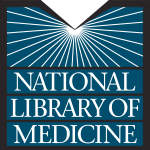- Industrie: Library & information science
- Number of terms: 152252
- Number of blossaries: 0
- Company Profile:
The National Library of Medicine (NLM), on the campus of the National Institutes of Health in Bethesda, Maryland, is the world's largest medical library. The Library collects materials and provides information and research services in all areas of biomedicine and health care.
Unit of perceived air quality: air on mountains or the sea has a decipol = 0.01; city air with moderate air pollution has a decipol = 0.05- 0.03; acceptable indoor air quality has decipol = 1.4 (for 80% satisfaction).
Industry:Biology; Chemistry
Area between a curve and the abscissa (horizontal axis), i. e., the area underneath the graph of a function: often, the area under the tissue (plasma) concentration curve of a substance expressed as a function of time.
Industry:Biology; Chemistry
1. Caused by or influenced by human activities.
2. Describing a conversion factor used to calculate a dose or concentration affecting a human that has been derived from data obtained with another species, e.g. the rat.
Industry:Biology; Chemistry
Process of rendering harmless (by neutralization, elimination, removal etc.) a potentially toxic substance in the natural environment, laboratory areas, the workplace, other indoor areas, clothes, food, water, sewage etc.
Industry:Biology; Chemistry
Measurement and its criterion refer to the same point in time: an example would be a visual inspection of a wound for evidence of infection validated against bacteriological examination of a specimen taken at the same time.
Industry:Biology; Chemistry
Spontaneous differential movement of components in a system.
Note: In molecular terms, the driving force for diffusion is random thermal motion. In thermodynamic terms, the driving force is a gradient of chemical potential.
Industry:Biology; Chemistry
Consequence which follows exposure to two or more physico-chemical agents which act jointly but do not interact: the total effect is the simple sum of the effects of separate exposures to the agents under the same conditions.
Industry:Biology; Chemistry
1. Pertaining to a systematic relationship between growth rates of different parts of an organism and its overall growth rate.
2. Pertaining to a systematic relationship between size, shape, and metabolism in different species.
Industry:Biology; Chemistry
Acute food poisoning caused by botulinum toxin produced in food by the bacterium Clostridium botulinum and characterized by muscle weakness and paralysis, disturbances of vision, swallowing, and speech, and a high mortality rate.
Industry:Biology; Chemistry
Statistically calculated lower 95 % confidence limit on the dose that produces a defined response (called the benchmark response or BMR, usually 5 % or 10 %) of an adverse effect compared to background, often defined as 0 % or 5 %.
Industry:Biology; Chemistry
